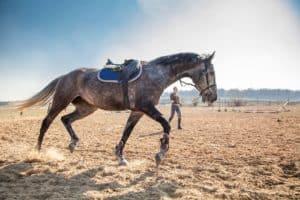Does Feeding Affect Behavior?
Next time you visit your local feed and tack store, peruse the horse supplement section. Chances are you will find at least one that claims to have a “calming” effect on horses. Whether or not these supplements live up to these claims is














